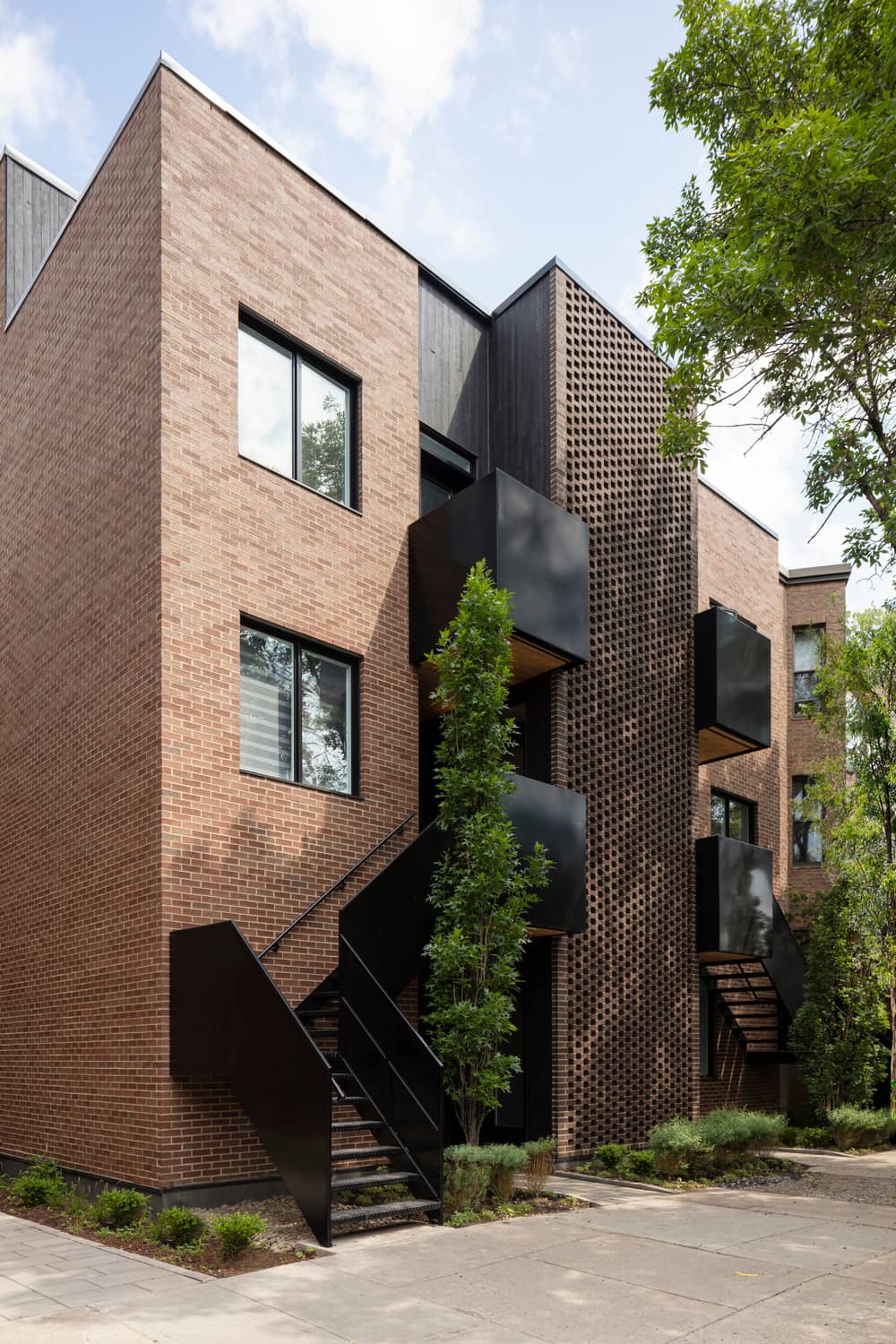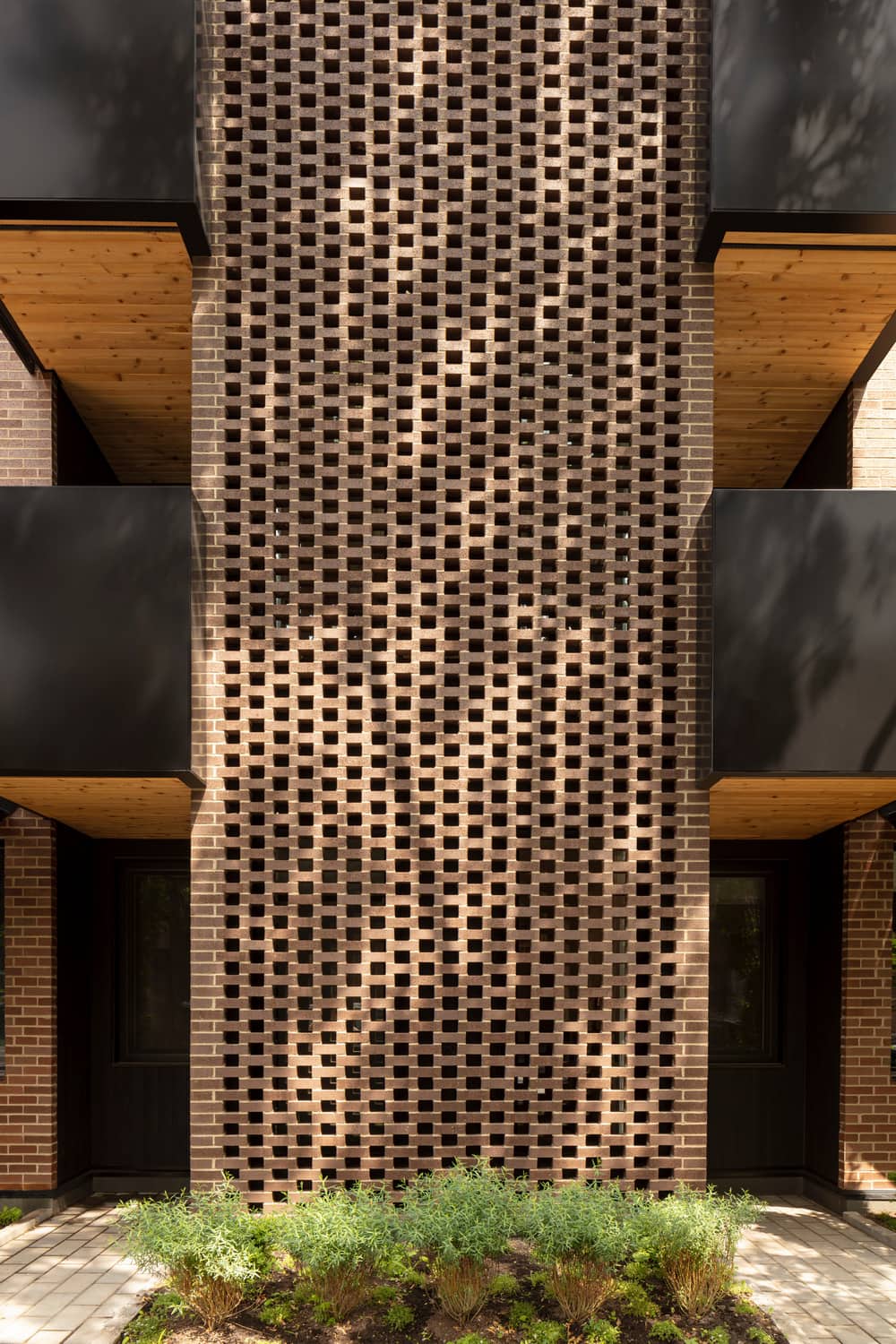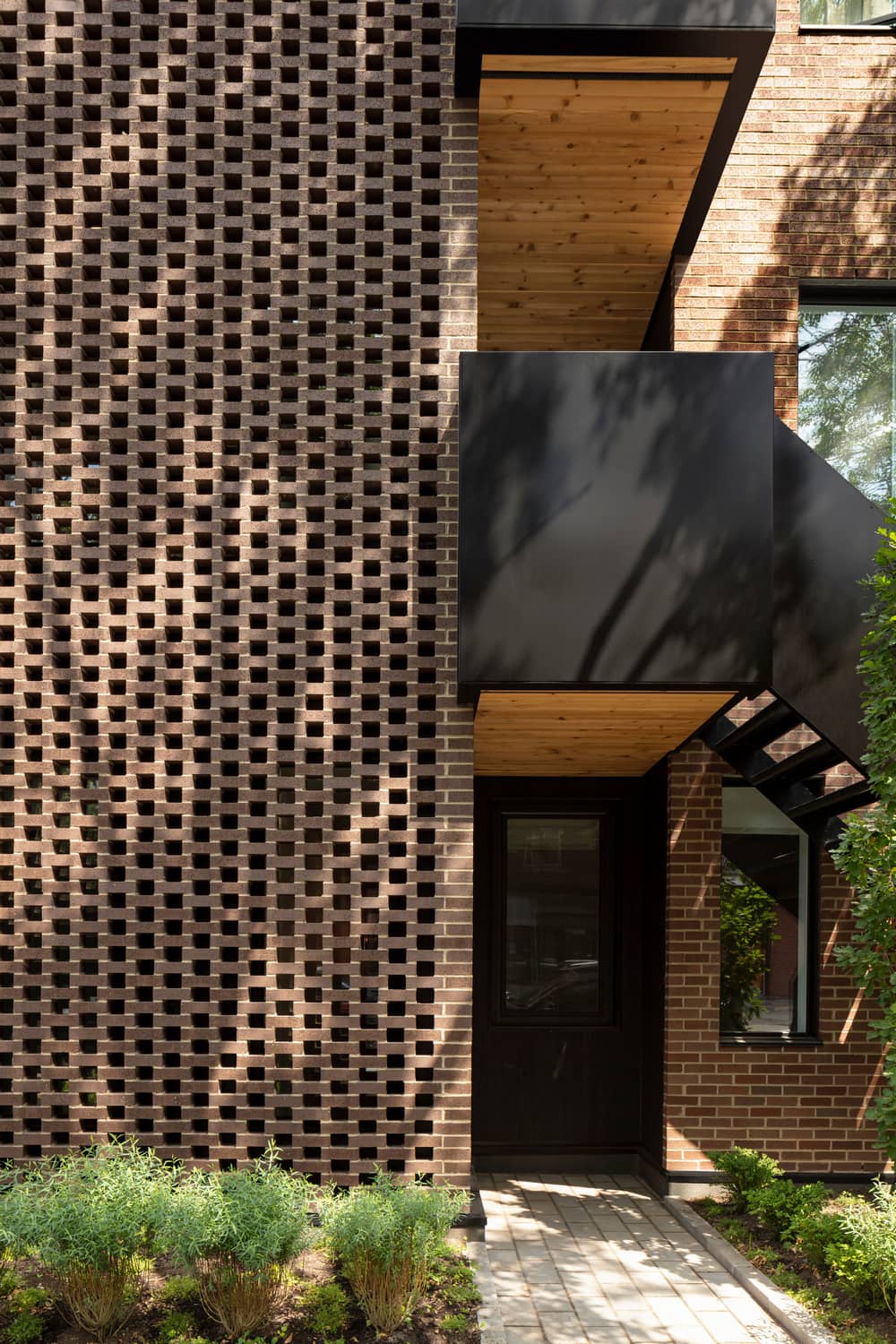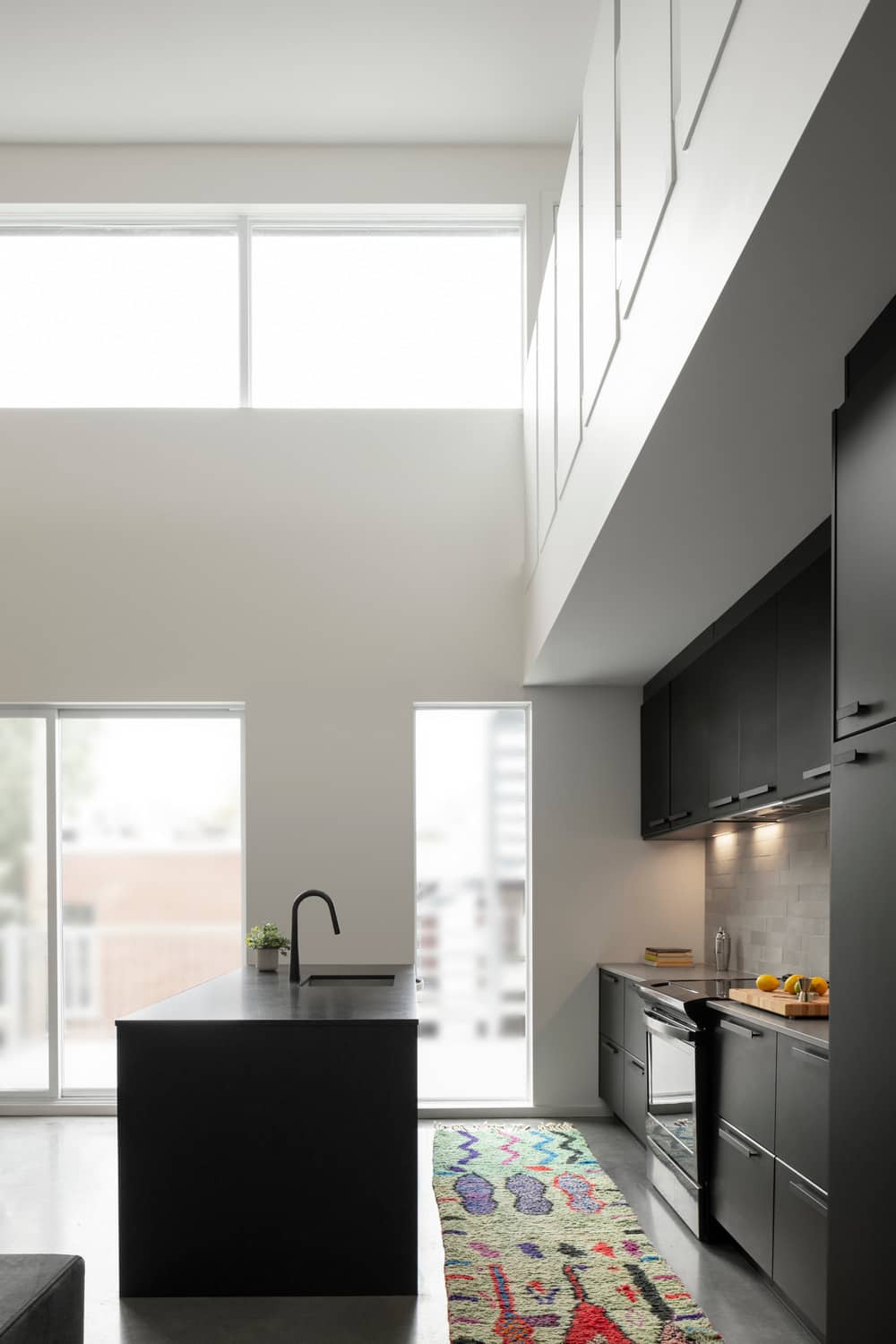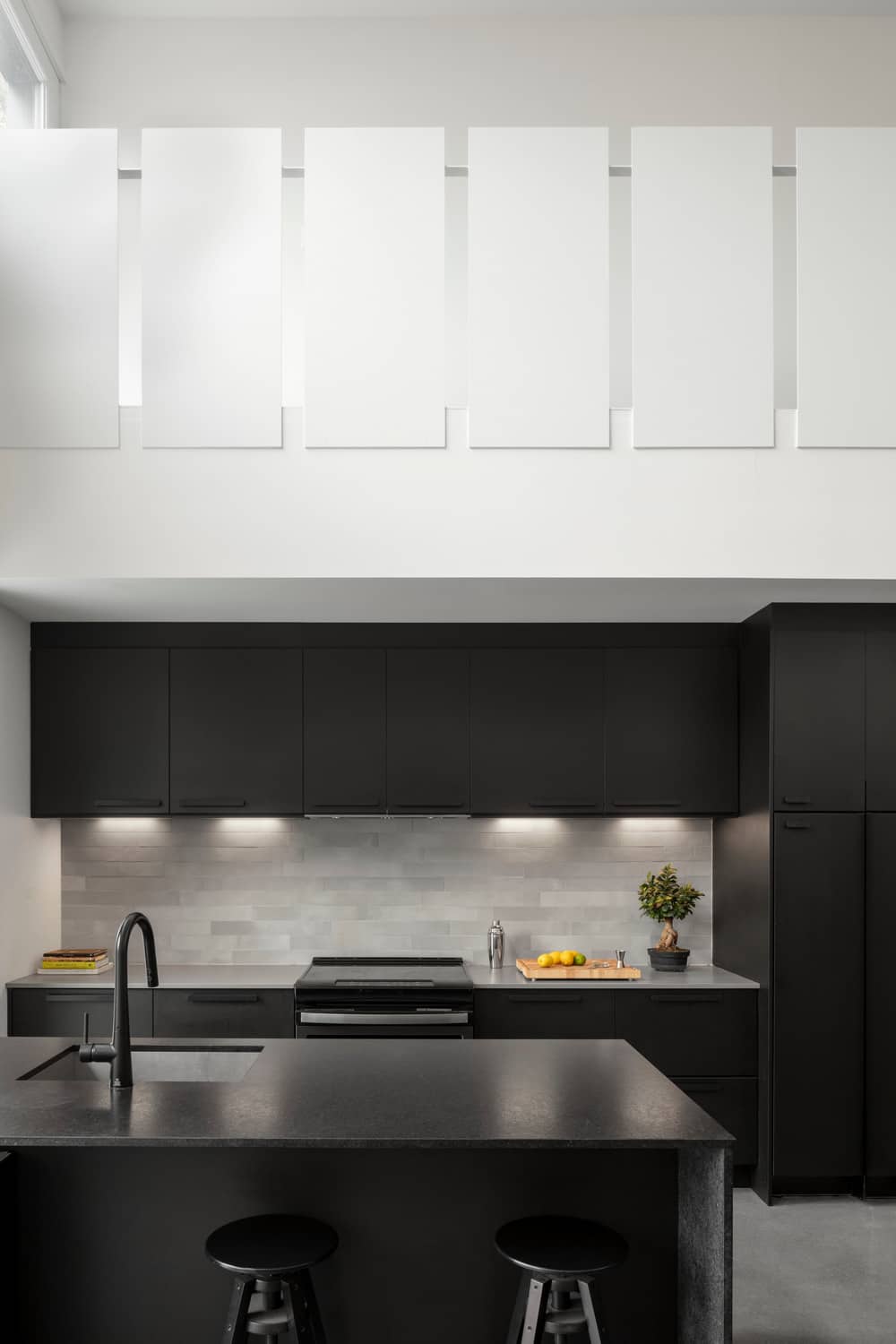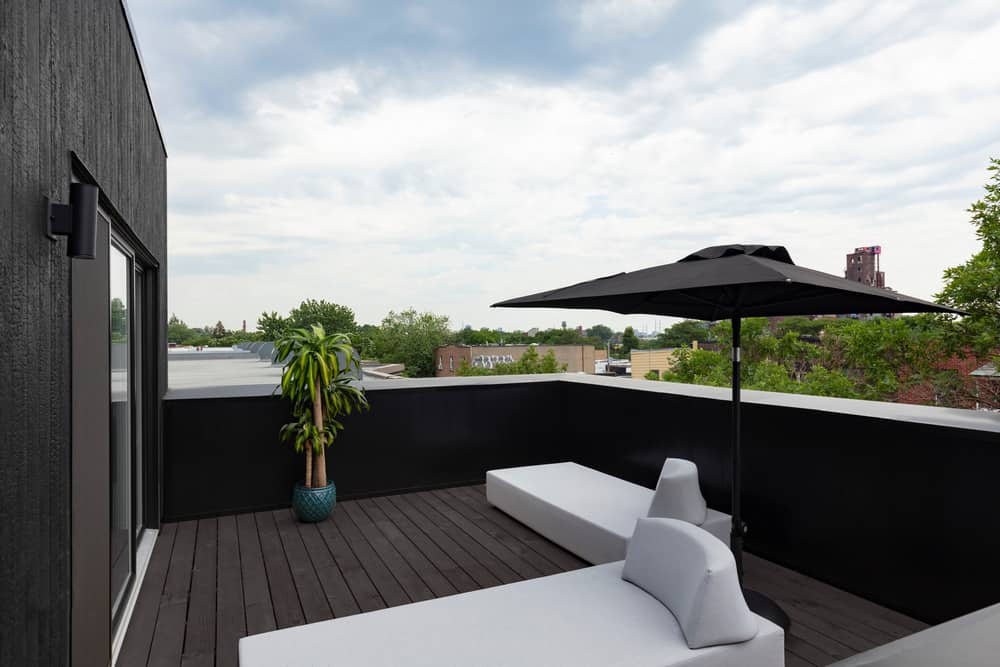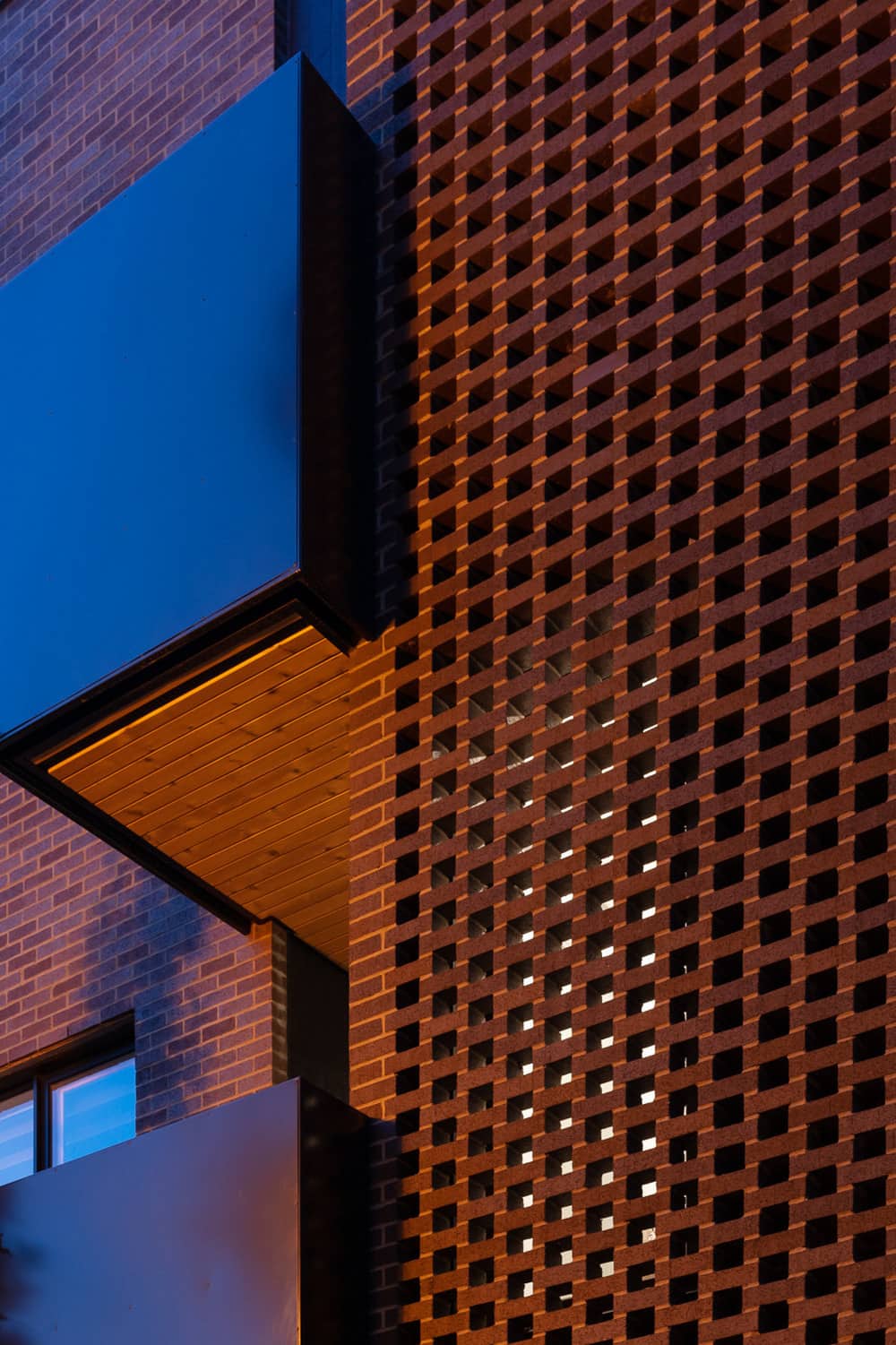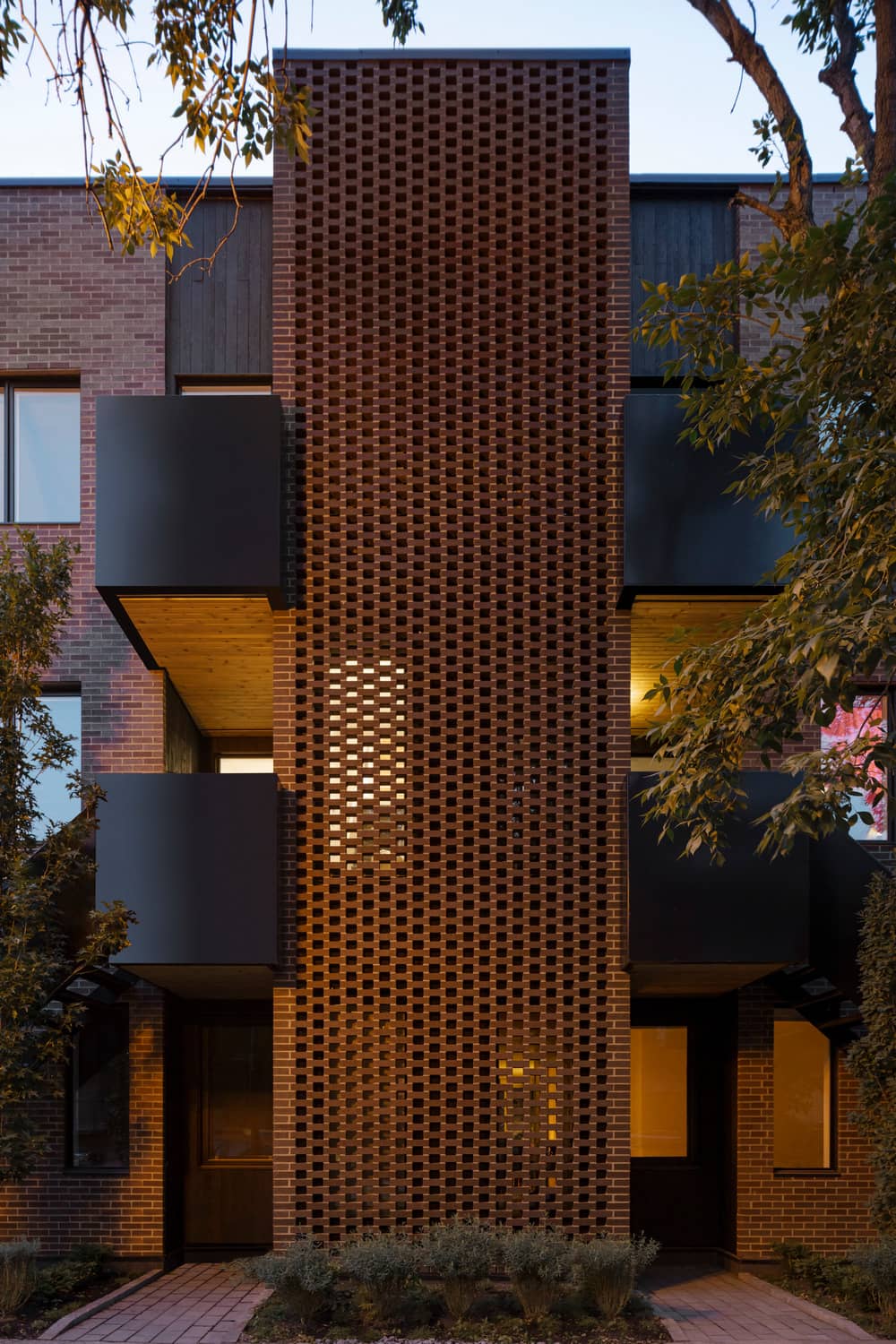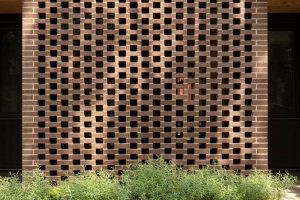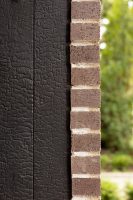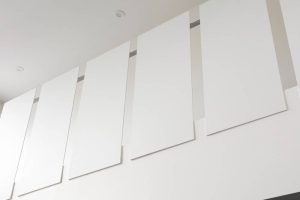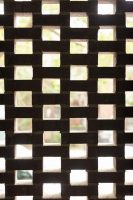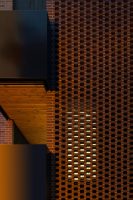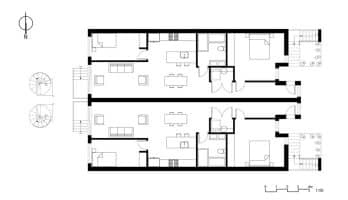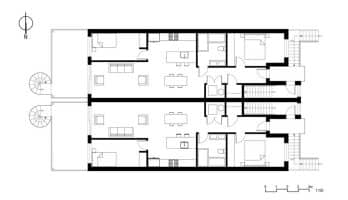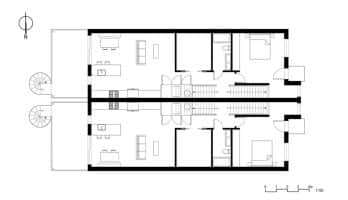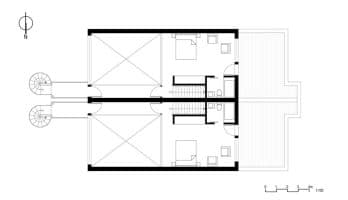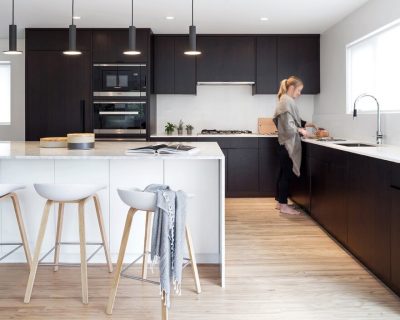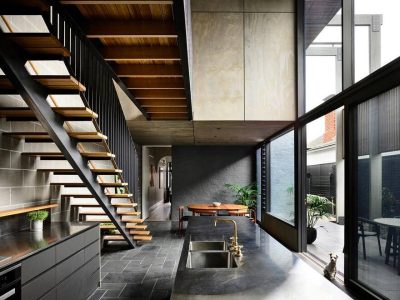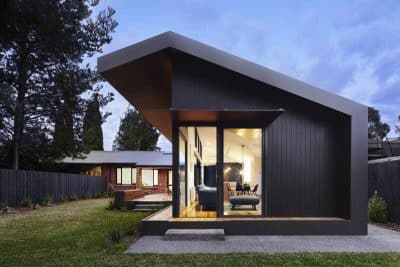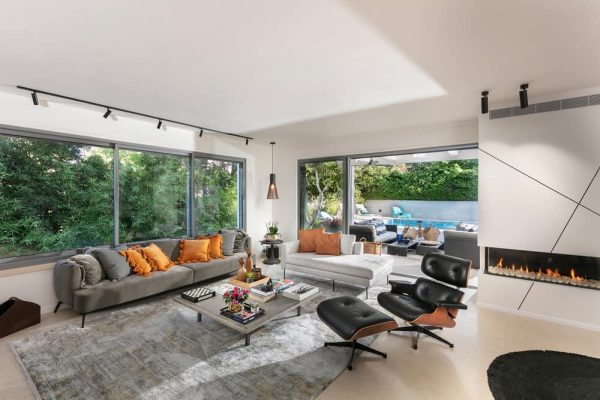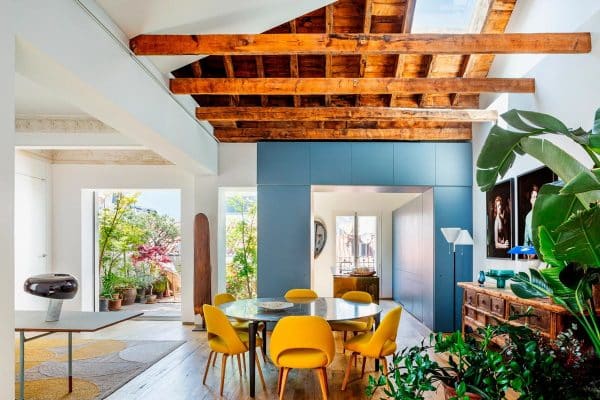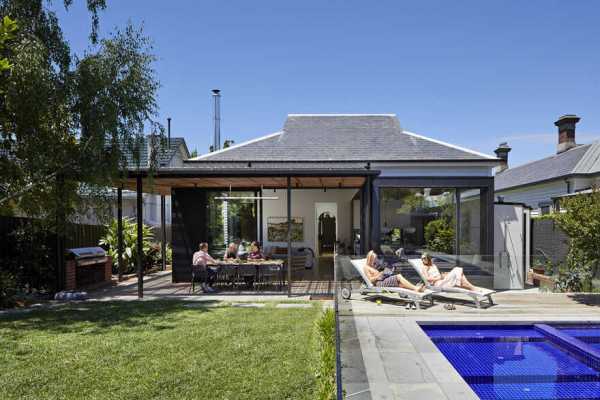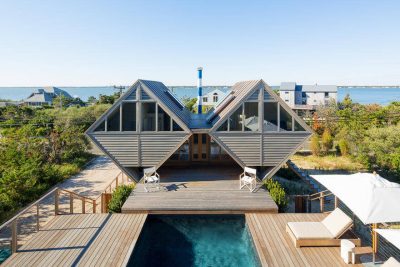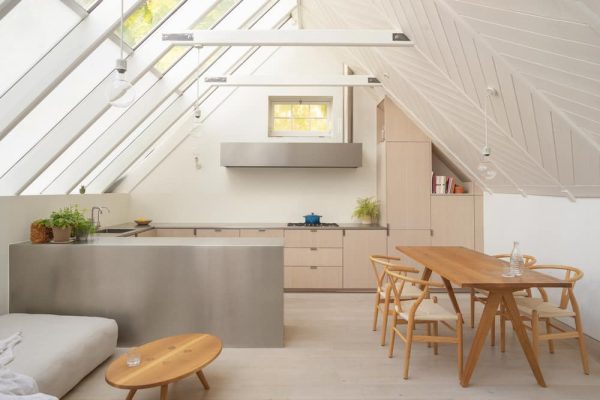Project: Notre-Dame Triplex / modern reinterpretation
Architects: Le Borgne Rizk Architecture
Engineer – L2C
General Contractor – Cocoon Construction
Area – 2 triplexes on 3 floors with lean-to, no basement – +_1000sq.ft./floor + lean-to
Materials – Bricks – Bowerstone Shale Company / Shou Sugi Ban Burnt Wood – Yakisugi (burnt cedar) / Metal panels (back)
Project completion date – Winter 2019
Location: Notre-Dame Street East, Montréal, Canada
Photo credit: Maxime Brouillet
Le Borgne Rizk Architecture, an award-winning Montreal-based firm renowned for applying creativity, technical competence, and aesthetic sensitivity to the creation of efficient, functional, and harmonious buildings, proudly introduces Notre-Dame, two semi-attached residential triplexes located in Montreal’s south-west district. The project stands out for its reinterpretation of the classic design elements of Montreal triplex history, as well as for its innovative reinterpretation of dominant neighbourhood themes.
“The challenge from the beginning was to design a building with distinct character, yet which would blend into the fabric of the neighbourhood,” explains Amani Rizk, partner and co-founder of the firm. “That part of Notre-Dame Street is quite eclectic, and the site is flanked by a massive residential project to the right, and an odd commercial building to the left.”
Reinterpreting the past
The project was commissioned by Construction Cocoon Inc., a residential development firm serving as both client and contractor. Built completely from scratch on a vacant lot, Le Borgne Rizk envisioned a modern interpretation of a traditional Montreal triplex, historically featuring external front staircases. With surrounding residential units mainly designed with internal staircases, the firm focused on a design that would bridge the gap between traditional elements and existing neighbourhood characteristics.
“We wanted the structure to blend into its surroundings, but without replicating everything simply for that purpose,” says Ms. Rizk. “That can be challenging when beginning on a vacant lot, and you need to play with the setback, the alignment, the height, and more in order to make it your own.”
In doing so, the firm worked closely with the City of Montreal to ensure that their design would meet with strict municipal alignment requirements. Le Borgne Rizk identified some common design elements that needed to be incorporated in order to mimic the surrounding topology, but then reinterpreted them through the infusion of original elements that define the building’s unique character.
A mesh of influences
External bent metal staircases lead from the ground level to the second level as an aesthetic tribute to triplex designs of yesteryear. Although externally exposed, the staircases are smartly concealed for privacy through the strategic placement of tall trees. The upper-level staircases are contained within a protruding central volume that connects the two triplexes. Constructed in a brick pattern, the central volume draws inspiration from the concept of a mashrabiya, an architectural element characteristic of traditional Islamic design. In addition to housing the upper staircases, landings, and entrances, the volume’s brick latticework facilitates the intake of natural light, while offering residents external views without compromising privacy. The outward extension of the central volume affords additional interior space, allowing for oversized landings and entranceways. The undersides of the landings are finished with cedar, adding warmth to the entrance areas. The third level is even more expansive and was designed to allow for seating in a small reading nook with external views.
Quiet comforts
Internally, the living spaces are designed as high-end rental units, with very functional, but simple layouts. The front areas of the ground floor and second floor apartments feature single bedrooms and a small office space, with a focus on the backend of the units in the form of large living/dining/kitchen areas. The third-floor units feature double-height ceilings and integrated staircases leading up to a spacious rooftop mezzanine, set back from the street for added privacy, and to respect a city bylaw.
“Wherever there are setbacks from the main façade, including the walls surrounding the landings, they have been finished in the Japanese shou sugi ban style,” concludes Ms. Rizk. “It’s a burnt wood treatment that adds a degree of warmth to the hollow facades, as well as to the roof terrace.”
With recognizable nods to classic design, unique reinterpretations, and infusions of ingenuity, Notre Dame has earned its place as a welcome addition to the neighbourhood, and a testament to the creative thinking of Le Borgne Rizk.
In recognition of the firm’s innovative work, the project received 3 Grands Prix du Design in the categories of Building Façade, Residential Building/Low-Rise Rental or Condominium Building, and Special Award/Wood featured in architecture.

